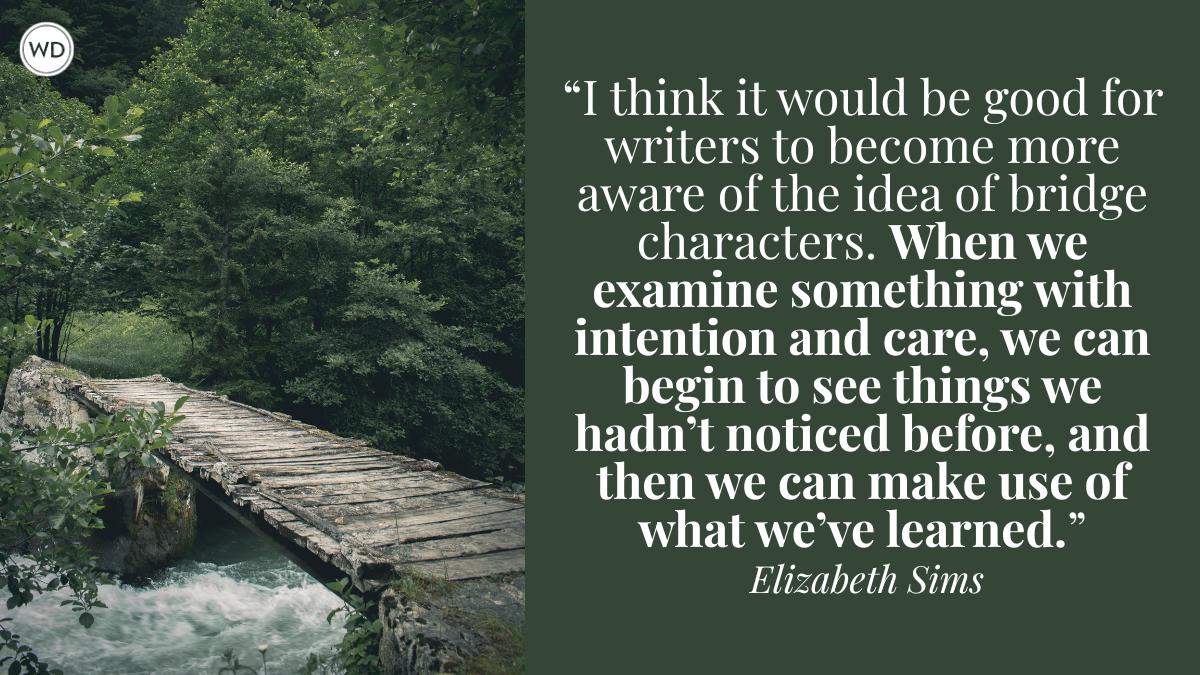David Adams Cleveland: On Truth Revealing Itself in Historical Fiction
Award-winning novelist David Adams Cleveland discusses the timeliness of his new novel, Gods of Deception.
David Adams Cleveland is a novelist and art historian. His latest novel, Time’s Betrayal, was named Best Historical Novel of 2017 by Reading the Past. In summer 2014, his second novel, Love’s Attraction, became the top-selling hardcover fiction for Barnes & Noble in New England, and Fictionalcities.uk included Love’s Attraction on its list of top novels for 2013. His first novel, With a Gemlike Flame, drew wide praise for its evocation of Venice and the hunt for a lost masterpiece by Raphael. His most recent art history book, A History of American Tonalism, won the Silver Medal in Art History in the Book of the Year Awards, 2010; and Outstanding Academic Title 2011 from the American Library Association. It was the bestselling American art history book in 2011 and 2012.
David was a regular reviewer for Artnews, and has written for The Magazine Antiques, the American Art Review, and Dance Magazine. For almost a decade, he was the Arts Editor at Voice of America. He and his wife live in New York where he works as an art adviser with his son, Carter Cleveland, founder of Artsy.net, the new internet site making all the world’s art accessible to anyone with an internet connection.
More about David and his publications can be found on his author site, davidadamscleveland.com, and you can also find him on Facebook.
In this post, David discusses the timeliness of his new novel, Gods of Deception, the roadblocks you navigate in writing a longer novel, and more!
Name: David Adams Cleveland
Book title: Gods of Deception
Publisher: Greenleaf Book Group
Release date: May 17, 2022
Genre/category: Literary Fiction
Previous titles: Time’s Betrayal (October 2017), Love’s Attraction (April 2013), A History of American Tonalism (October 2021)
Elevator pitch for the book: Gods of Deception is the first fictionalized account of the Alger Hiss spy case—the 1950 "trial of the century”—which goes beyond the headlines to explore the lives of three generations of a family impacted by the controversies surrounding Hiss’s conviction for lying. Relying on the latest historical research on Stalin’s network of American agents, the novel takes the reader on an unsettling journey into the past—in search of an elusive truth—a past, tragically, more present than ever with KGB-acolyte Putin’s invasion of Ukraine.
IndieBound | Bookshop | Amazon
[WD uses affiliate links.]
What prompted you to write this book?
I have always been fascinated by the Hiss case, not so much by his conviction for passing top secret State Department documents to his GRU (Soviet military intelligence) handler, Whittaker Chambers, but why the trial divided the country for almost two generations. How was such a thing possible? And what exactly were the issues at stake? And if indeed Hiss was a spy, how could any man present and maintain such a guise of innocence and equanimity to his dying day? Or, for that matter, assemble a defense team of the best and brightest lawyers on the planet and seemingly convince them of his innocence, when so much of the evidence went against their client?
And then there was the enigma of Hiss’s spy master, Whittaker Chambers, who reluctantly testified against Hiss and his wife Priscilla, and then went on to write an autobiography, Witness, in the grand tradition of Saint Augustine, in which he describes in scintillating dark detail his days in the Soviet underground and his friendship with Hiss. A book derided and dismissed by Hiss’s defenders as self-serving fiction even as many reviewers considered it a classic of its kind.
Either Chambers was a talented fabulist with an unfathomable animus against Hiss, or he was a writer—a truth teller of great spiritual depths, perhaps the conscience of his generation who, like so many well-meaning folks in the 1930s and 1940s, was drawn to the siren song of Stalin and the Soviet Union. So many puzzling contradictions. So many unanswered questions—and a truth, it turned out, indeed, stranger than fiction.
How long did it take to go from idea to publication? And did the idea change during the process?
It’s been at least five years since the first ideas for the novel began germinating in my mind to pub date. And like so many ideas for novels, a lot changed along the way. I began with the central focus on the Judge, Edward Dimock, the man who defended Alger Hiss, with the idea of telling the story through his eyes, but soon realized that for the novel to work, for both dramatic purposes and to create suspense, the Judge needed to be put in the witness box. He also needed to be an enigmatic character and not necessarily trustworthy.
So, although the Judge remains a central character, his version of the truth is elicited by his astrophysicist grandson, who plumbs his grandfather’s failing memory—and his incomplete memoir for clues to the underlying truth surrounding the Hiss affair. A truth, I soon realized in the writing process, that went much deeper than just the evidence presented in the trial, and more recent data gleaned from decrypted Soviet cable traffic and Soviet era intelligence files. I soon realized through the writing process that any truth worth knowing is layered and nuanced and arises out of the lived lives of the various characters; in this case, three generations of the Judge’s family (all impacted by the notoriety of the famous trial). Guilt or innocence is fairly straight forward, but motive is fleeting and only glimpsed—a mirage, a flash of insight, an old letter—through the interaction of various characters over time: if then!
This quest for answers in my characters’ lives took on a life of its own and so transformed my original idea for the novel. I realized that the truth emerges from the journey and evolves through time, a retrospective view based on often faulty and self-serving memories. And so my novel expanded to ultimately include four generations of the Dimock family, touching on the life and times of each generation—and the lingering impact of the Hiss trial as it echoes down the wind.
Were there any surprises or learning moments in the publishing process for this title?
The necessities of plot and character, expanding to four generations, meant that the novel expanded as well to 900 pages—truly a family saga! In these days of digital media and short attention spans, everything militates against long fiction. The economics of the publishing industry also make long books problematic. My editors were well aware of this pitfall but nevertheless persevered when we all agreed that the novel worked well at its present length.
Of course, my agent was aghast at the difficulties of finding a publisher for Gods of Deception. We had three offers to publish the novel and finally settled on Greenleaf. Their editorial team also had initial reservations about the length but after three copy edits and minor cuts, they too rallied to the book at length. In the end, I feel that a writer’s ultimate loyalty is to the story and its readers.
After doing signing events at Indies and Barnes & Nobles from Maine to Florida, I’ve heard from scores of readers, as they weigh one of my novels in their hands: “Well—such a long book, but you know (sotto voce) if I love a book, I never want it to end.”
Were there any surprises in the writing process for this book?
I began the writing process thinking that Alger Hiss was probably guilty of spying in the late 1930s, passing top secret State Department documents to his handler Whittaker Chambers, the crime for which he was convicted (for perjury, for lying about the accusations). What surprised me was that Hiss was a much bigger spy than anyone in the 1950s realized, with the possible exception of Whittaker Chambers who suspected as much.
With the release of the Venona Files (decrypted Soviet cables from World War II) in the late 1990s, and a brief window of access to Soviet era intelligence files during the days of Boris Yeltsin’s presidency of Russia, we now know that the real damage Hiss did was during World War Two when he was in the upper echelons of the State Department and passing secrets to the Soviet Union.
Even more devastating, it turns out Hiss was an agent of influence who sat at Roosevelt’s right hand at Yalta and was debriefed by his Soviet handler each morning vis a vis the negotiating position of the US and its allies. The giveaway of Eastern Europe and much else in the Yalta accords have Hiss’s fingerprints, and those of his fellow spies, all over them. On the way back from Yalta, Hiss stopped briefly in Moscow, where, in a secret ceremony, he was given the Order of the Red Star by the head of Soviet intelligence.
What do you hope readers will get out of your book?
I hope readers will find in Gods of Betrayal a story for our life and times (no matter their age). How ideological battles, as they do today, can do damage to families over generations. But more importantly, the story of the Hiss case reminds us that the kind of manipulation of the truth that was such a KGB specialty in Stalin’s Soviet Union, is still with us in Putin’s Russia. Disinformation used to justify an inhuman war in Ukraine.
Most importantly, the tales of espionage at the center of the novel are really a means to telling the story of one American family: a meditation on time and memory, a journey into the troubled human heart—of a past that is ever present.
If you could share one piece of advice with other writers, what would it be?
Don’t go by a formula or template according to which a novel should be written. Writing fiction should be an organic process in which the telling of a story—its evolution and adaption to changing circumstances—guides the writer. The characters, too, must come to life and demand their place on the page, so that their stories surprise you and move you and take you to places undreamt of in your original outline.
And yes, a first outline is always a good starting point, but don’t let it be a straitjacket. Let your curiosity driven by your passions be the signposts on your journey, uncovering new wonders at every turning.








